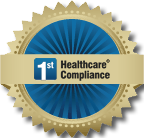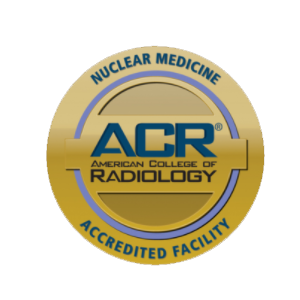Many people may be in disbelief to learn that everyone has hemorrhoids. Hemorrhoids play a vital role in the function of the sphincter muscles. The blood vessels that make up hemorrhoids are a universal feature of the anal and rectal regions. However, according to Johns Hopkins, hemorrhoids can become problematic and present at least half of the population with unpleasant symptoms by 50. The good news is that preventative measures can reduce the risk of good hemorrhoids going bad.
What are Hemorrhoids?
Hemorrhoids are a cushion of blood vessels in the anal canal that act as a seal when a bowel movement isn't occurring. Dr. Timothy Adams, a colorectal and general surgeon at General Physician, cites two hemorrhoid myths.
Myth #1:
Only people with symptoms are patients with hemorrhoids. "Everyone has hemorrhoids. We're born with them, and we die with them. Even patients who undergo surgery to have them 'removed'," he says, "we're not removing them. - we're shrinking them."
Myth #2:
Hemorrhoids are only there to be problematic. They're not; they help with your bowel function. They're why you don't poop your pants when you sneeze or cough. The problem arises when the hemorrhoids become symptomatic.
What types of Hemorrhoids are there?
There are two types of hemorrhoids, external and internal. External hemorrhoids occur in and around the anal canal, and internal hemorrhoids happen in the rectum. External hemorrhoids will often present with symptoms including pain, itchiness, inflammation, and bleeding. Internal hemorrhoids typically lay dormant and do not present with symptoms.
There are a few factors that lead to symptomatic hemorrhoids. Dr. Adams explains, "It's all about gravity and pressure." Sitting on the toilet for long periods is a common cause for men. The pressure from a bowel movement and the lack of support from the cut-out seat is a combination that leads to bad hemorrhoids. For women, pregnancy and childbirth are the leading causes of painful hemorrhoids.
Bowel movement avoidance is also another issue. Dr. Adams says that many of his patients are teachers and truck drivers. Because they cannot always leave their work when they need to relieve themselves, holding in a BM leads to harder stools. Dr. Adams explains, "The longer the stool sits inside your rectum waiting for you to relieve it, the longer your body will evacuate water from the stool." Hard stools require more pressure to evacuate and irritate the anal canal.
Types of Treatments
The good news is that you can treat most hemorrhoids effectively at home. Dr. Adams says, "90% of the time, you can correct them by changing your dietary or physical habits." He emphasizes the "Big Three": hydration, fiber, and exercise.
- Hydration helps soften your stools and lubricate your digestive tract.
- Fiber is excellent for colon health.
- Regular exercise helps with colon physiology producing better function and allowing for a better bowel movement. Dr. Adams suggests 20 minutes of activity (e.g., walking) three times a week.
Dr. Adams explains, "If you increase your fiber, but you aren't drinking more water, you will promote more irritation, leading you right back down the same road." Speak with your doctor about changes that are right for you based on your diet, exercise routine, and hydration levels.
Of course, these changes take time to heal the pathologic hemorrhoids. In the meantime, Dr. Adams states that you can use hydrocortisone and thorough cleaning to reduce irritation. He says, "Stool in and of itself is an irritant. If you cannot clean your anal area appropriately, then that stool starts to aggravate the hemorrhoids more." Dr. Adams recommends using a bidet (if you have access to one) or a warm sitz bath to clean yourself after a bowel movement.
And though precious few have access to a bidet in the US, almost no one has the time to take a sitz bath after every BM. So wet wipes are a great substitute, and he recommends avoiding sitting on the toilet for long periods, too.
When Surgical Treatment is Needed
Some symptomatic hemorrhoids require surgical intervention. However, surgery won't rid you of hemorrhoids; it's essential to maintain a healthy lifestyle and adhere to Dr. Adams' Big Three.
The most common surgical method used for internal hemorrhoids is ligation. The physician uses tools to place rubber bands around the hemorrhoids, reducing the blood flow in a controlled way that avoids strangulation and reduces the hemorrhoids' size. Other methods that work the same way are sclerotherapy and infrared treatment. However, these treatments are for internal hemorrhoids only.
If the doctor observes that external hemorrhoids are causing most of the symptoms, they will perform a hemorrhoidectomy. During the procedure, the surgeon physically removes the symptomatic hemorrhoids. Surgery is a last resort for the most severe cases.
Simple and practical lifestyle changes can restore hemorrhoids to good health. Remember, everyone has hemorrhoids. They help keep our anal canal healthy and functional. However, if your good hemorrhoids go bad, colorectal surgeons like Dr. Timothy Adams are standing by to help treat unpleasant symptoms. For more information or to make an appointment with Dr. Timothy Adams call 716-636-9004. Or Click Here for office locations and more information.

 APPLY ONLINE TODAY!
APPLY ONLINE TODAY!





